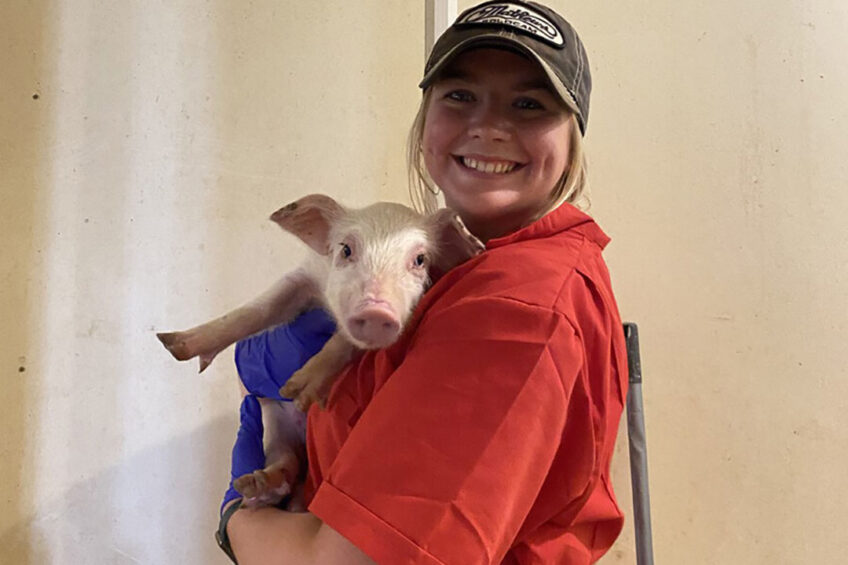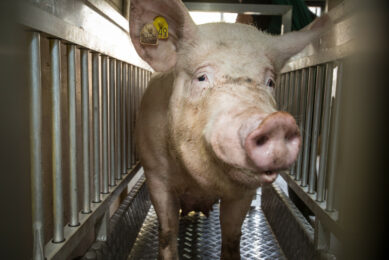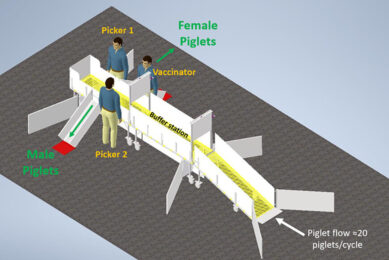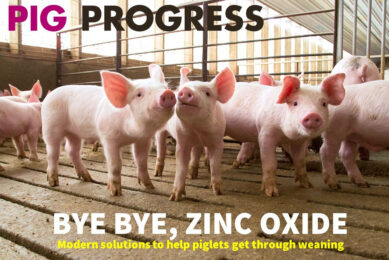Student wins innovator prize for water acidification project

Carly Bates, a 3rd-year veterinary medicine student at Iowa State University has won the 2023 Morrison Swine Innovator Prize for a project on water acidification.
The prize is an annual award given to a vet student in North America who plans to specialise in swine medicine. Winners receive a cash award of $ 5,000 (€ 4.749) plus registration and travel costs to attend the Leman Swine Conference, where the prize is given out every year.
The prize honours the legacy of the late Dr Bob Morrison, who coordinated the conference for many years. It is sponsored by leading swine producers, veterinary practices and industry partners.
Lower pH
Bates says she chose the topic because this summer, she was able to spend a lot of time in barns where pigs were suffering from E. coli outbreaks. “I got to see first-hand the devastation that this disease can cause fot producers, caretakers and even the vet team. Seeing all this, I knew I wanted to focus one of my summer on being able to help the swine industry prevent or decrease the effects of E. coli, especially in the face of many anti-microbial resistant strains. Acidification products are getting more popular and I wanted to provide knowledge.”
Easily applicable
Dr Perle Zhitnitskiy, the University of Minesota professor who currently coordinates the prize, stated at the ceremony that “the jury felt like Carly was really confident in her delivery, had ownership of the content, and understood her project well. Her findings could easily be applied to a farm.”
Project details
Acidification has been looked at for many years as a way to reduce disease threat in pig production. Researchers in Belgium in 2010, for example, found that lowering the pH of the drinking water in newly-weaned pigs reduces the E. coli load. However, Bates noted that a specific pH level that inhibits E. coli growth had not yet been determined before she did her project.
So this summer, Bates grew F18 E. coli at various pH levels. This strain of E. coli typically affects post-weaning pigs around 10-12 weeks of age and has a mortality rate of 50-90%. Bates found a pH level where no E. coli would grow. “What was surprising to me was how definitive the ‘cut off’ of is,” she says. “When looking at the results, there was no surface growth at a pH of 4 whereas at a pH of 5, there was a fairly significant amount of surface growth even at a high dilution.”
Future studies
Bates explained that although further trials are not planned at this time, future studies could determine how E. coli growth is inhibited at incremental pH levels between 4 and 5. “Another step would be to gain an understanding of in vivo enteric luminal pH,” she said, “when pigs are administered water of various pH levels.”
Drawbacks
There seem to be no drawbacks to acidifying water. Bates said acidified products are typically very easy to use and cheaper compared to antimicrobials. She added that “with the swine industry seeing more and more anti-microbial resistant strains of E. coli these are a great option to reduce/decrease the growth of E. coli.”











